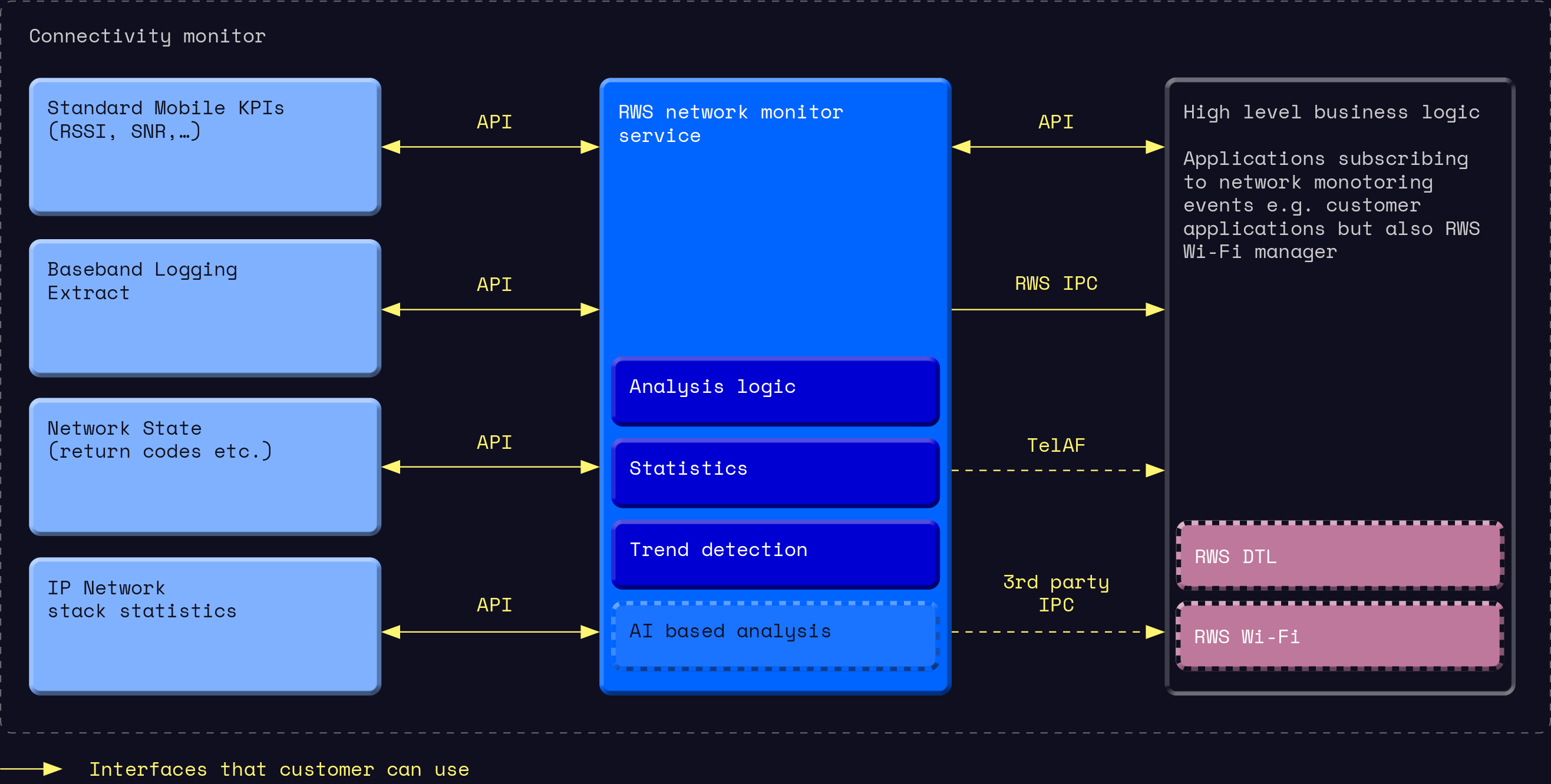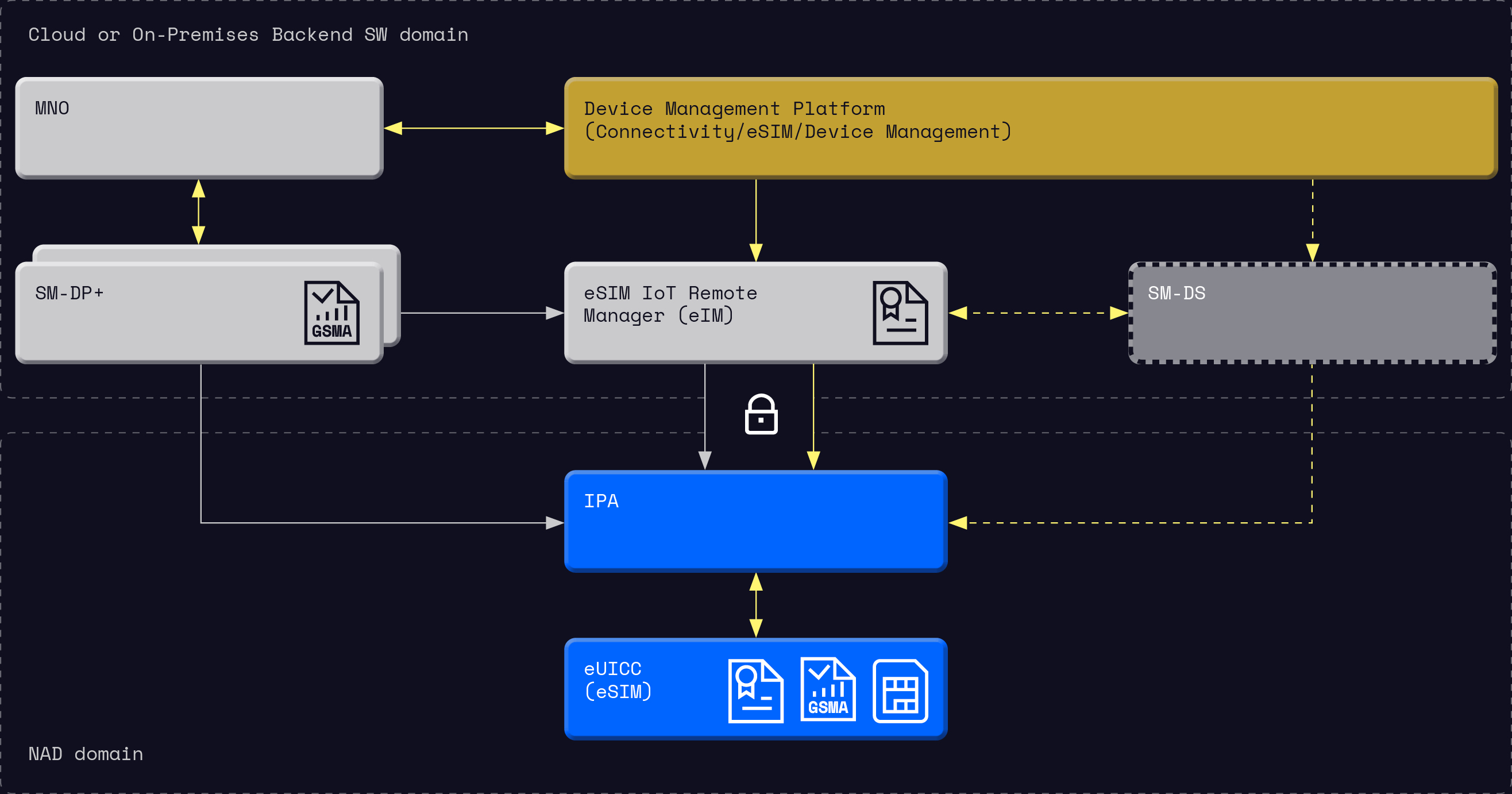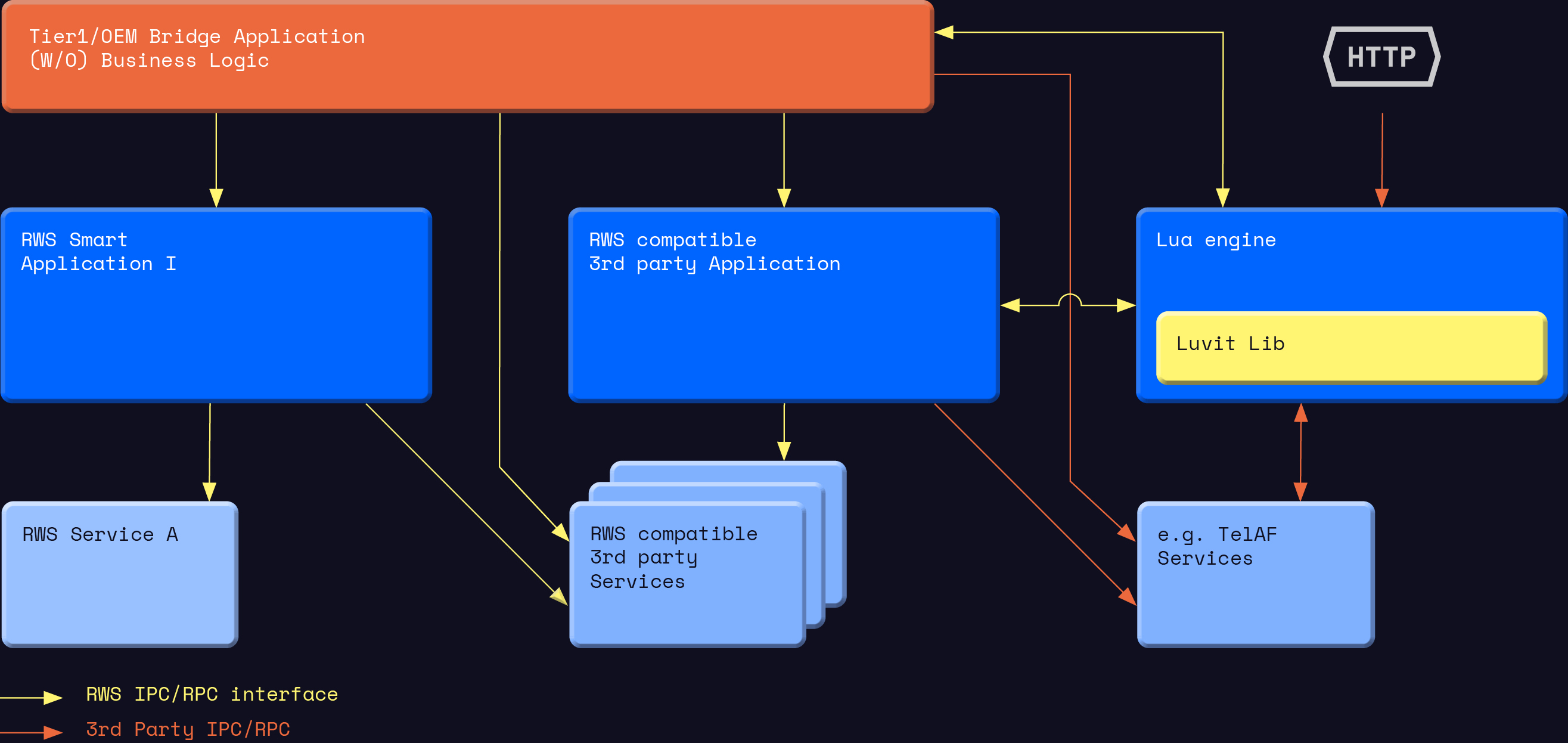- Our solutions
- Software Solutions
- Value Added Software
Value Added Software
Rolling Wireless offers a wide range of optional software components, built to work on any of our supported software platform options.
These smart applications and middleware components are provided as value-added features on top of the standard platform services and APIs.
Smart applications
Our range of ready-to-use applications are designed to address common connected vehicle and telematics use cases.
All our applications are flexible and easily customised to fit specific customer requirements. They are fully validated, and continuously maintained and updated to meet any applicable regulatory and industry standards.
Connectivity Monitoring: Solving connectivity issues
With the integration of Wi-Fi, Bluetooth and cellular modules in most TCUs, in-vehicle connectivity options have multiplied. Maintaining always-on connectivity on the move has become a major challenge for connected vehicles, due to factors such as:
- technology shutdown (2G, 3G, ...)
- white zones in cellular coverage
- the so-called cellular “IoT trap” (devices are locked in an only apparently connected state where cellular stacks are not easily able to exit)
Network monitoring requires in-depth knowledge of network stacks and potential network behavior issues, which is why Rolling Wireless offers the Connectivity Monitoring smart application to ensure reliable, optimised connectivity at all times.
The application monitors available networks and provides smart switching between the connections to optimise for your desired KPIs. It can monitor items like:
- multiple cellular networks (if the TCU is equipped with multiple SIMs)
- available Radio Access Technologies (RATs) like 3G, 4G and 5G
- Wi-Fi and Bluetooth networks.
Detection of connectivity issues helps to control high level application behaviour and user notification. Rolling Wireless combines information from different sources to analyse network status and flag connectivity monitoring events.

Health Monitor
This application monitors the health of the NAD as well as the TCU to ensure that both systems can meet the expected lifetime of the device.
The application can monitor several environmental parameters, such as the temperature of the NAD, PA’s, PMIC, etc. as well as monitoring the memory read/write and CPU usage to detect and prevent unexpected behavior.
The application can either do passive monitoring and generate alerts or take corrective action to reduce permanent harm to the device by managing the mission profile configured over the air.
Easy SIM lifecycle management – SGP.32
A traditional USIM is fixed to its operator. It is not possible to change the connectivity provider during its lifetime except if a traditional removable plastic SIM is used, which comes with issues of reliability in automotive use cases.
- To be able to change the SIM Profile the eUICC* (eSIM) was introduced:
- The first standard, SGP.02, required MNO harmonisation which was not successful on the market. SGP.02 customers must typically stay with their service providers for the entire product lifetime.
- The next standard, SGP.22, introduced the “Consumer” eUICC which is only controllable by the end customer – not by MNOs, Tier 1s or the OEM – and it was not widely deployed in automotive applications.
- The solution for this is the new SGP.32 standard which allows to manage the SIM lifecycle by an OEM as well as the end customer. It is configurable based on OEM choice.
- Rolling Wireless is reviewing an option to integrate the eUICC into the NAD module. This can save space on the TCU board as well as simplify logistics of manufacturing.
- We also offer integration services for local and backend software components needed to implement the SGP.32 SIM control.

eCall IVS
The eCall IVS Smart Application provides a quick roll out of a full-featured emergency call service by adapting the eCall IVS Smart Service to the host vehicle system.
The eCall IVS Smart Application is a high-availability service designed to meet requirements for:
- Mandatory regulatory emergency call services such as European 112-based eCall
- Third party service eCall or private eCall.
- Upcoming regulatory emergency call services (NG eCall, Japan, China, USA).
The eCall IVS Smart Application implements a complete state machine for an eCall service, including voice prompt playback, call redialing, call resuming.
The application is portable and supports multiple frameworks like:
- Qualcomm Telematics Application Framework (TelAF)
- Qualcomm Telematics SDK
As an additional option, Rolling Wireless also offers a comprehensive audio tuning service to meet the stringent eCall audio quality requirements at the vehicle level.
Middleware & Enablers
In addition to standard services and APIs, Rolling Wireless also offers many custom middleware components that are pre-integrated with the flexible NAD software platform to help make it easier and quicker to complete TCU development and go to market.
All components are fully tested and validated. They provide high-level consistent APIs that remain backwards compatible with newer chipsets and software features.
Simplified Services Intercommunication
IPC/RPC are key components in a modern software system.
- IPC/RPC can be challenging in heterogenous environments
- A single IPC mechanism is desired to reduce complexity
- Intercepting and manipulating IPC/RPC during development helps to test and debug application development and reduce time to market.
Rolling Wireless IPC/RPC provides:
- nanomsg based domain socket, TCP, WebSocket, TLS
- Sync and async IDL-based APIs, with well-defined error handling mechanisms
- Secure transport based on TLS providing IPC security
- Allows use from external entities such as IVI or TCU
Lua scripting support for RPC:
- Ideal to write glue code between services
- Helps to connect to other frameworks such as TelAF
- Web support for demo and testing
- Simplifies testing, test case creation and debugging

Contact us for more information
You may also be interested in
-
NAD software platform (NSP)
Ensure rapid and future-proof application development with a flexible, Linux-based NAD Software Platform.
→ -
Agile Software Development
Minimize scheduling risks with our custom software design and development services, delivered by an experienced software team, tailored to your program needs.
→